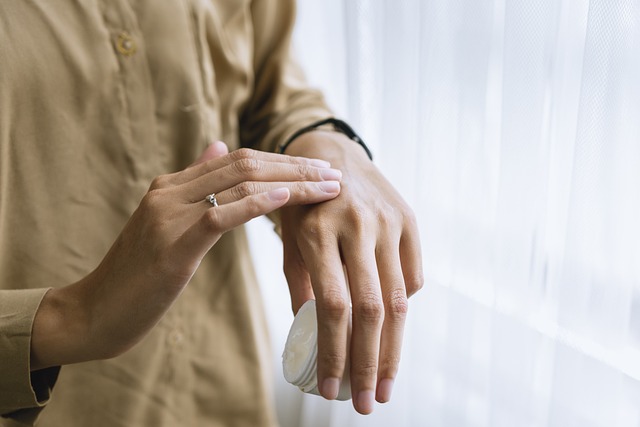Ensure protection from UV rays by understanding the appropriate amount of sunscreen to use, the timing and method of application, whether to apply it before or after moisturizer, and additional tips.
- Begin by thoroughly shaking your sunscreen bottle before application to break up any clumping that may have occurred during storage.
- Ensure complete coverage of all exposed skin, including the ears, neck, and back of hands, as these areas are often overlooked. Rather than dispensing sunscreen in one large amount, apply smaller, evenly-sized dots to facilitate thorough and effective spreading.
- When applying sunscreen to the face, gently tap it onto the skin instead of rubbing to prevent irritation and achieve an even application.
- Exercise caution when applying sunscreen around the eyes. Consider using a stick sunscreen for this area to apply a thin layer and minimize the risk of eye irritation.
- Opt for a face sunscreen when applying to your face, as these formulations are designed to minimize irritation and typically have a lighter texture for a more subtle appearance.

How much sunscreen should you use?
Experts recommend using approximately 30ml, slightly more than the volume of a shot glass.
You might also be curious about the amount of sunscreen needed for your face. A general guideline is to use a squirt of sunscreen roughly the size of a 1-inch circle. Remember to tap it into the skin rather than spreading it.
Now that you understand how much sunscreen to apply, you may be wondering about the timing and frequency of application.
How frequently should you apply sunscreen?
It’s essential to apply sunscreen daily, even on cloudy days. Incorporating SPF into your daily skincare routine, such as using a moisturizer with SPF, ensures consistent protection.
However, a single application at the start of the day isn’t sufficient. So, how often should you reapply sunscreen?
Plan to reapply sunscreen at least every two hours, as well as immediately after swimming or sweating, as both activities can degrade the effectiveness of the sunscreen.
Remember, while we may diligently apply sunscreen before going out, most sun damage occurs later in the day as the initial application wears off. Therefore, it’s crucial to continuously reapply sunscreen throughout the day.
WHEN TO APPLY SUNSCREEN? SHOULD SUNSCREEN BE APPLIED DAILY?
Applying sunscreen daily is essential whenever your skin is exposed to the sun. Since the sun’s harmful UV rays are always present, it’s crucial to apply sunscreen to any exposed areas of your body to minimize the risk of skin damage.
Facial application is particularly important. Dr. Göddertz from Beiersdorf emphasizes, “Your face is exposed to the sun every day, even in cloudy or cold weather, requiring reliable protection against UVA and UVB rays.”
HOW LONG DOES IT TAKE FOR SUNSCREEN TO ABSORB?
While it was previously recommended to apply sunscreen 20-30 minutes before sun exposure to allow for absorption, most sunscreens today have an immediate effect. However, absorption times may vary among products, so it’s essential to follow the instructions on the packaging. Regardless, it’s crucial to reapply sunscreen every two hours at minimum.
WHAT COMES FIRST, SUNSCREEN OR MOISTURIZER?
Dr. Göddertz advises applying facial sunscreen after day care to protect sensitive facial skin from premature aging signs like wrinkles or pigment spots.While some suggest the type of UV filter in your sunscreen should dictate application order, Dr. Göddertz recommends applying sunscreen afterward, regardless of UV filters used in the product.
WHY APPLY SUNSCREEN BEFORE MAKEUP?
When applying sunscreen before makeup, allow your skin to dry for at least five minutes to ensure maximum absorption. Reapplying sunscreen throughout the day may affect makeup application. To avoid smudging, consider dabbing sunscreen onto your face using a makeup sponge. Opting for a lighter sunscreen can further minimize smudging while ensuring optimal protection.
CAN SUNSCREEN BE USED AS A MOISTURIZER?
Yes, but it’s advisable not to rely on it as a replacement. While sunscreen does offer hydration, moisturizers are specifically designed for skin hydration, which may not be adequately addressed by sunscreen alone.
Whether or not you should use sunscreen as a moisturizer also depends on the formulation and your skin type. For instance, if your sunscreen is tailored for oily skin and has a lighter texture, using a separate moisturizer may be necessary to ensure your skin receives adequate hydration.
Some good options SUNSCREEN are below:


